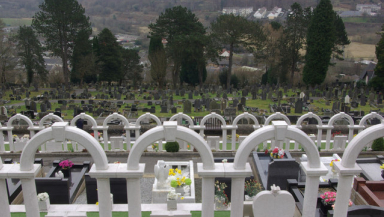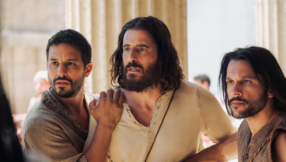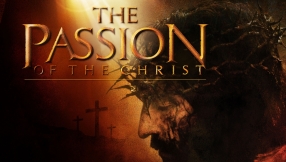
God has a wonderful plan for your life.
It's evangelical orthodoxy, on a par with belief in substitutionary atonement and the sanctity of Spurgeon. It's part of the salvation package, along with forgiveness of sins and life everlasting. Christianity isn't just true, it offers the sure and certain knowledge that whatever happens to you is God's will. If you don't like it, it's because you haven't understood it.
I don't believe a word of it.
I understand where people who think like this are coming from, I really do. They have a deep sense of the sovereignty of God. They want to affirm his power. They're dismayed by any idea that things just happen and that life, as far as we can tell, is random. We might not know why things happen, but God's working to his own agenda.
There's an anonymous poem that sums it up, comparing life as we know it now to the reverse of a tapesty, in which the pattern is obscured and barely discernible. So:
Not 'til the loom is silent And the shuttles cease to fly Shall God unroll the canvas And explain the reason why.
The dark threads are as needed In the Weaver's skilful hand As the threads of gold and silver In the pattern He has planned.
In other words: the bad things that happen to you are God's doing and part of the master-work he's making of your life.
I see the attraction. But I think the idea that God deliberately weaves dark threads into our lives is theologically flawed and psychologically cruel. I think we should stop saying it and start offering people something more real, more exciting, more dangerous and more true.
Here's my problem. There are two accounts of God's sovereignty which are equally questionable. Let's call the first the 'hard' version. In this one, God's sovereignty is a deterministic philosophy in which human free will is an illusion. You have to put up with bad things happening to you because it's ultimately for your own good, just as a child has to put up with a measles vaccination. In some unspecified and incomprehensible way, we still have free will and moral agency. But ultimately, the aweful power and majesty of God overrules and overwhelms: all we can do is resign ourselves to his will. Alexander Pope put it this way in his Essay on Man:
All nature is but art unknown to thee, All chance, direction which thou canst not see; All discord, harmony not understood; All partial evil, universal good; And, spite of pride, in erring reason's spite, One truth is clear, Whatever is, is right.
But often, what is, is wrong. Some things that happen are just too terrible to justify by talk of dark threads or universal good. If we're to believe that God plans the tsunami, the cancer, Islamic State or Stephen Fry's eye-worm, what's required of us is not just a leap of faith, but a suspension of our moral judgment. "Woe to those who call evil good and good evil, who put darkness for light and light for darkness, who put bitter for sweet and sweet for bitter," says Isaiah (5:20). God does not plan evil.
It's not this 'hard' version of God's sovereignty that's the most pernicious, though. The 'soft' version runs like this: God wants us to be happy and fulfilled. To ensure that this happens, he's created a personalised route map for our lives. If we follow it, all will be well. If we don't, we can expect consequences. It's like a reward for solving a crossword puzzle. Just Google 'God's plan for my life' if you don't believe me.
This is the product of a fundamentally materialistic and consumerist worldview in which it's normal for good things to happen to us. Religion is a spiritual investment that pays temporal dividends.
When things are going well, it seems to work: that's God's plan, after all. When they aren't, it's not so clear. Either "God is testing us", in a coolly experimental process designed to make us stronger and better people, or we've sinned in some way and departed from his perfect will and it's our own fault.
If that's the case, the plan has failed. But either way, the idea that God plans our lives is, from a scriptural point of view, deeply suspect.
Where does the idea that God has our lives mapped out for us come from? Biblically, it's often related to Jeremiah 29: 11, "'For I know the plans I have for you,' declares the Lord, 'plans to prosper you and not to harm you, plans to give you hope and a future.'" There are other verses that speak of him working behind the scenes to bring about a particular result.
The trouble is that in too much evangelical rhetoric, these verses have had a weight put on them that they can't possibly bear. So we're forced into all sorts of mental gymnastics to try to justify the idea that God has a plan for each individual, even when this idea so clearly fails the test of experience. I'm sorry, but I don't believe God's plans for anyone include bereavement, divorce, redundancy or large-scale tragedy.
There is a heartbreaking film of a clergyman interviewed after the 1966 Aberfan disaster which killed 144 people, most of them children, when a slag heap collapsed on top of a school. "There has to be a plan," he chokes out. "I have to believe that."
And that's the problem: take away the idea that God's in control of everything that happens, and the alternative is too terrifying to contemplate.
There's another way of looking at it, though.
Suppose that, instead of trying to map a philosophical determinism or a spiritual consumerism on to the Bible, we actually read it?
When we do that, we don't find the God of the philosophers and scholars or the God of the shopping mall. We find the God of Abraham, Isaac and Jacob. We don't find that God plans our future. We find that he accompanies us into it. It's his presence with us that takes us safely through the valley of the shadow of death, not his hand on the steering wheel.
I believe we'd be spiritually healthier if we dropped talk of God having a plan for our lives, and started talking about God having a hope for our future – a hope that's ultimately based in resurrection.
God's hope for our future is about second chances, about choices and new beginnings.
At every stage of our lives we're faced with decisions, usually at a practical level but sometimes at a moral level. Practically, I might make all sorts of mistakes, from a choice of career to a choice of car or house. But God's hope for my future means that within that wrong choice there are right choices to make – and his desire is for me to flourish, within the context in which I find myself and according to my capacity, and above all for me to become more Christlike. I don't need to be rich, or healthy, or admired, for that to happen.
Morally, I might commit all sorts of sins – and I have. They don't fit into the 'plan' idea, either: but I know God has never given up on me. So every time I take the wrong path at a fork in the road, I know I'll come to another fork before long. Again, there'll be a choice: and the more wrong turns you take, the harder it becomes to do the right thing and get to the right place, but it's never impossible with God as your guide.
The resurrection of Jesus was God's statement that hope never ends.
I don't believe God has a plan for my life. But I believe that he has a desire for me, to be filled with his Spirit and made Christ-like. So, "Lead, kindly light, amid the encircling gloom ... Keep thou my feet, I do not ask to see the distant scene; one step enough for me."
Follow @RevMarkWoods on Twitter.













